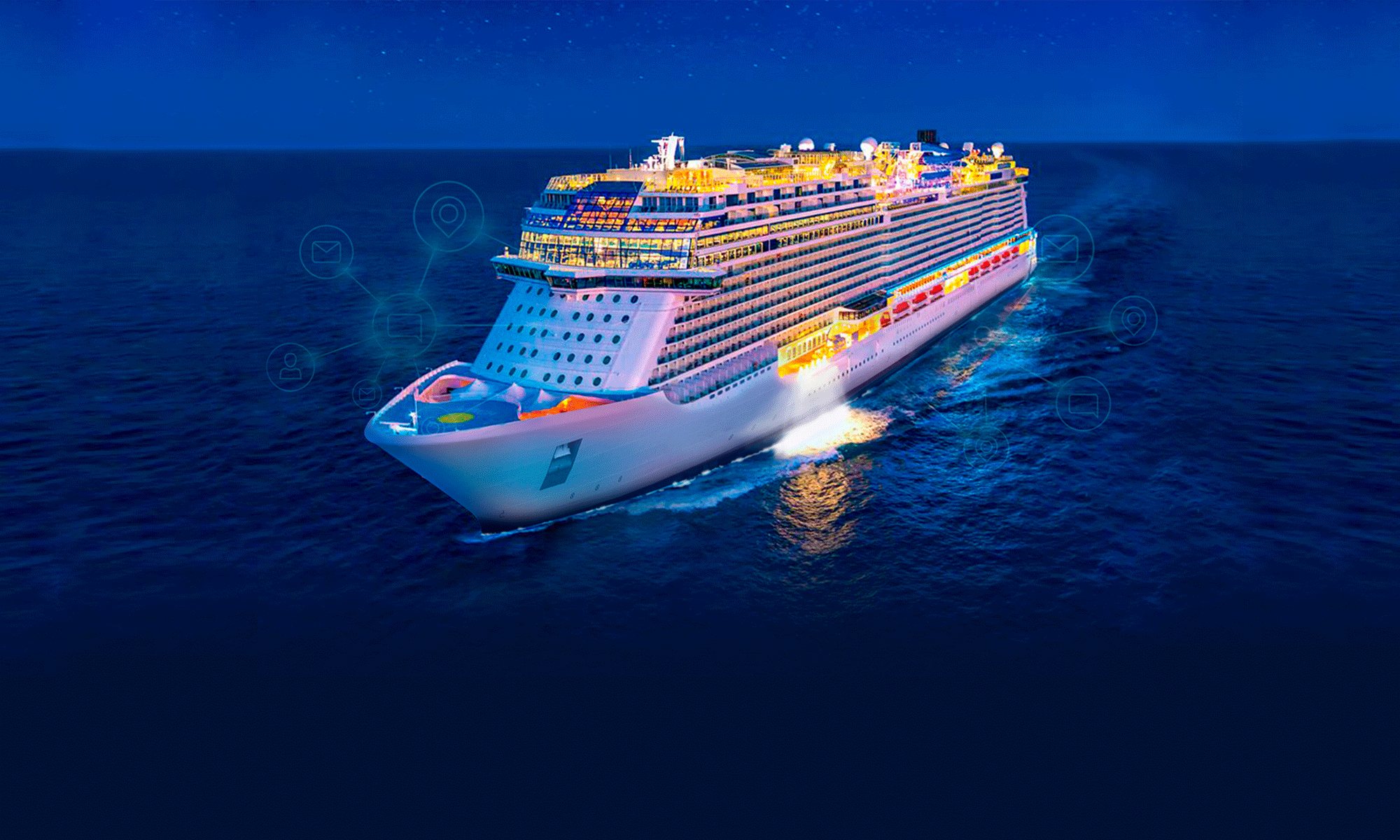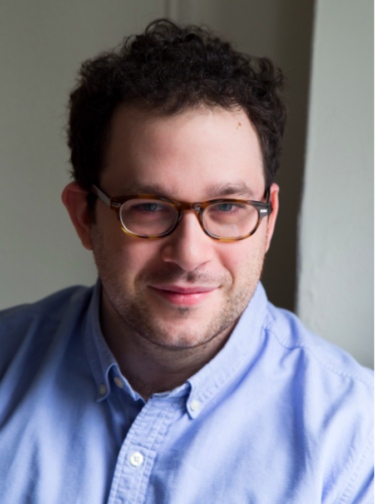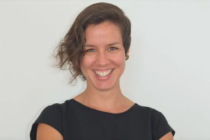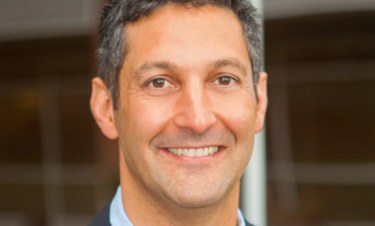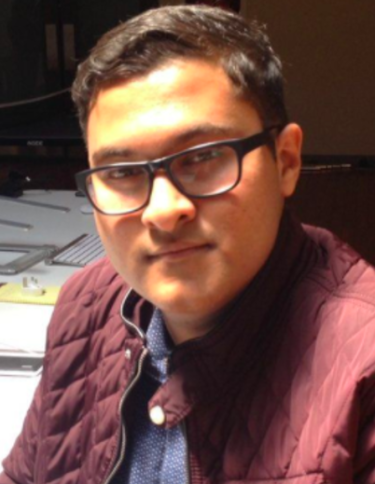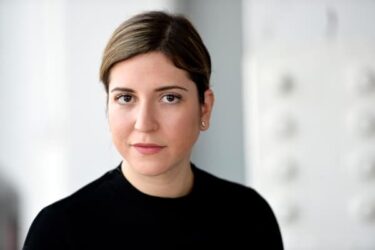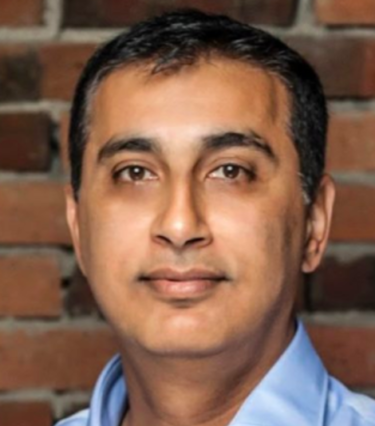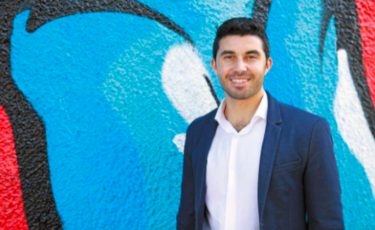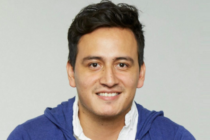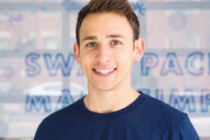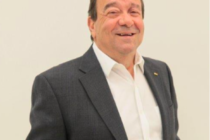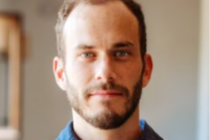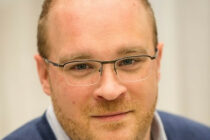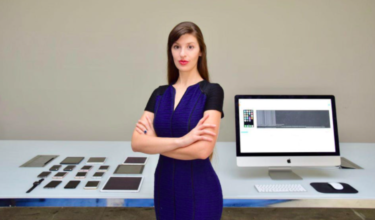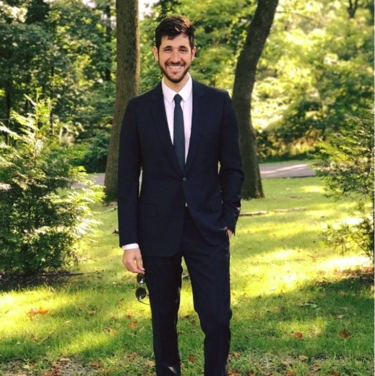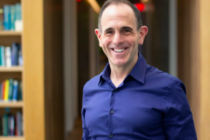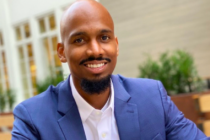Gaining speed on the historical leader Silicon Valley, 2021 was a banner year for the Miami tech scene.
Investment in Miami spiked at the end of 2020, and has kept pace all the way through 2021. In the first three quarters of 2021, Miami tech companies raised $2.4 billion, tripling the $811 million they raised in the same period in 2020.
Founders, entrepreneurs, and technologists based in Miami have boasted of the city’s legitimacy as a technology and investment hub for years to savvy venture capitalists, and now it seems their claims are finally getting their day in the sun.
It is safe to say that Miami will bring the heat to the future of the tech scene, both in 2022 and beyond. Here are The Sociable’s top 20 tech leaders in Miami in 2022 to watch.
Alex Taub, Co-Founder and CEO of Upstream
Upstream focuses on generating meaningful connections through communities and events, aiming to create a professional network with products designed for organic interactions and life-changing connections. In the same realm as LinkedIn, Upstream is instead focused on the places that LinkedIn isn’t necessarily focused on—and they believe there are opportunities for big companies to better serve the needs of professionals in these spaces.
Alex Taub and his co-founder, Michael Schonfeld, are both serial entrepreneurs who together launched Upstream in October 2020. They lead with the belief that growing your network shouldn’t be draining, and are aiming to create a digital experience that draws from the best facets of in-person interaction in order to forge connections. Alex previously was the co-founder and CEO of SocialRank (acquired by Trufan), was featured in Business Insider as one of the “Top 20 Under 25” in the NY tech scene, and has written for a multitude of big-name media entities.
Upstream started as a product that allowed users to crowdsource help from others. Drawing its strength from the diversity and generosity of its community, Upstream is a values-driven platform built to help professionals share useful insights with each other. Look out Miami (and maybe LinkedIn) 75% of the people who attend an initial Upstream event return for a second one so this will be a startup to keep an eye on.
Ana Paula González, Director of the Softbank Miami Initiative
The Softbank Miami Initiative is a $100 million funding commitment dedicated to supporting and building the community of technology start-ups. The firm’s keen eye for investing comes from an ethos centered around advancing human progress as a whole. The firm boasts a team of partners with a legendary track record in turning ingenious ideas into transformative businesses. They’ve invested in and worked with dozens of companies including Sprint, Alibaba, WeWork, SoFi, Uber, and Lemonade.
Ana Paula González held 4+years of tenure at global VC firm 500 Startups before being appointed Director at Softbank’s Miami Initiative. As one of the most active VC investors globally, she held a variety of roles in her last job that included launching the 500 Startups Miami office, leading the Global Ecosystem and Accelerator Programs, and launching the firm’s global Managed Fund.
In the belief that Miami is on the cusp of becoming a major technology hub, Softbank is now eagerly hunting for their next unicorn in The Magic City. With the start-up ecosystem quickly picking up steam, Softbank wants to provide founders seeking guidance, capital, and the long-term growth resources they need to disrupt entire industries. Under Ana’s leadership, this is the fund to watch.
Amit Yoran, Chairman and CEO of Tenable
Tenable enables organizations to understand and reduce their cybersecurity risk, employing some of the greatest minds in security to provide their customers with the agility they require to stay one step ahead of bad actors. They use active scanning, agents, passive monitoring, cloud connectors, and CMDB integrations to provide unified visibility and a continuous view of all of a company’s assets. With coverage for more than 59,000 vulnerabilities, Tenable has the industry’s most extensive CVE and security configuration support to help businesses understand all of their exposures.
Amit Yoran, chairman and chief executive officer of Tenable, brings seasoned experience to his role leading this budding company. The crown jewel of experience for Yoran was serving as the National Cyber Security Division director within the United States Department of Homeland Security. Yoran then continued on to a role as president of computer and network security company RSA, which he took on during his tenure as CEO of NetWitness Corp.
Combining vulnerability data, threat intelligence, and data science for easy-to-understand risk scores, Tenable quickly assesses risk and knows which vulnerabilities to fix first. They provide a risk-based view of your entire attack surface—so you can quickly identify, investigate, and prioritize vulnerabilities.
Zaid Rahman CEO and Co-Founder of Flexbase
Construction finance is currently facing a $1.6 trillion cash flow problem that Flexbase wants to solve by offering the first credit card and payment app built for the construction industry. It gives licensed contractors and construction firms a 60-day float at 0% interest and helps them get paid faster through AR/AP automation that looks towards future invoicing as collateral rather than a personal credit score. Giving construction workers the peace of mind to run their business, this payments platform is merged with a proprietary app connected to the card that makes daily operations easier.
Zaid Raham founded this fintech startup in the construction space to try and solve the gigantic problem of cash flow in the industry. Prior to this, he co-founded San Francisco-based AI startup Volley, aimed at building a learning-focused search engine. He also invests through 305 Ventures, a venture capital firm based in Miami, which is for founders investing in other founders.
Flexbase Payments allows contractors to quickly file, track, and collect invoices and deliver compliant pay apps and legal notices with a few clicks. The app easily tracks receipts in seconds through its new receipt recognition algorithm that recognizes your receipt even if it is crumpled, dirty, or blurry. Easier than using Gmail, the flexbase app helps organize construction projects with the click of a button. Both Zaid, and Flexbase will be ones to look out for in the Miami tech scene.
Francesca de Quesada Covey, Partner at TheVentureCity
TheVentureCity is a group of operator-led investors that support startups from first ticket to first round. They invest in early-stage, mission-driven, and diverse founders and are committed to building a diverse network of companies, stakeholders, and an ecosystem of partners. Having already built a community of founders and startups stretching across the USA, Europe, and Latin America, their guiding principles are that the world’s minorities are their majority, and thinking outside the box is the norm, not the exception.
Francesca de Quesada Covey is not only a strategic partner at TheVentureCity, but is also a former White House aide and a current Tech Innovation Advisor for Miami-Dade County’s Mayor’s Office. An experienced business development technology executive and investor with over 15 years of experience, she has developed high-impact public-private partnerships and advised technology firms, elected officials, and government agencies. With TheVentureCity she invests in early-stage companies and is part of a group of investors who aim to become an extension of a startup’s team through providing strategic growth insights and capital.
Through Francesca’s leadership, TheVentureCity is helping to build a more resilient and inclusive tech ecosystem in Miami and beyond. In the belief that founders and ecosystems have no zip code, TheVentureCity is on a mission to make a difference for worldwide communities and economies, as well as for The Magic City. Empowering founders in emerging tech hubs through capital and expertise while also providing exceptional returns to their investors, they build the right foundation to turn the product itself into the primary driver of customer acquisition, conversion, and expansion.
Amyn Gillani, CEO of Talos Digital
Talos Digital is a team of professional software developers partnered with agencies and other businesses to provide consulting and development on their software products. Their specialties range from Software Development, Mobile + Web Design, Mobile Applications, UX + UI Design, Hybrid Certified Developers, Front End Development, Magento eCommerce, and Agile Methodology. They have teams located in New York, NY, Miami, FL, Austin, TX, Montreal, Canada, and Medellín, Colombia, and last year was acquired by Perficient, a global digital company.
CEO Amyn Gilliani is a seasoned leader, bringing needed savvy to a company with scores of multi-faceted offerings. With over 20 years of experience in IT technologies, including databases, web development, and mobile application development, Amyn leads his team under the principle belief that world-class consulting and experienced capability can drive digital transformation.
Talos boasts award-winning custom software development services, including mobile and web applications, to provide emerging technologies to global brands and digital clients. They also offer staff augmentation services with full-stack capabilities, specialized talent, and seasoned managers to tackle any technology project. From their work in developing blockchain-based solutions and AI, to cutting-edge eCommerce solutions, this company will be one to watch in Miami as they continue to spearhead clients’ emerging tech needs.
Christian Seale, Co-Founder of Vitruvia
Vitruvia, is a wellness, recovery, and performance platform focused on tissue repair that aims to transform lives by restoring bodies. They take recovery to the next level in Miami Beach with their science-backed and physician-approved methods. Vitruvia has helped hundreds of the world’s top performers, athletes, musicians, CEOs, and leading medical experts get back on track and live life to the fullest again. Through its natural approach to restoring and repairing tissue, high-profile clients such as the home-run king Miguel Cabrera and Boston Red Sox legend David Ortiz have gotten back into the game.
Led by Christian Seale, who is also the Founder and General Partner of Startupbootcamp Miami, Vitruvia is trailblazing medical recovery into a new era. Their team of leading medical, biomechanical, and performance experts take a personalized approach to restore quality of life via their in-depth tissue analysis, ScarMap®, and breakthrough RELIEF® procedure to repair and restore tissue.
As global healthtech has received $51.3 billion in investment in 2021, a 280% increase on 2016 levels, Vitruvia will be a company to watch in this sphere in Miami.
Alex Nabutovsky, Co-founder & Co-CEO of QuickNode
QuickNode is a node-as-a-service deployment solution for dapp developers who are focused on launching their projects instead of focusing on supporting infrastructure. Their mission is to help blockchain ecosystems scale, by providing accessible core infrastructure. Making it simple to power your blockchain applications and scale up as you grow, they offer elastic APIs, dedicated nodes, and powerful tools and analytics—all on-command through a simple control panel.
Alexander Nabutovsky brings in nearly 20 years of experience of being a CEO at other tech companies, leading his multinational team with over 40 years combined experience managing datacenters, high-speed networks, and distributed systems. With an ability to run a tight ship Alex will help steer Quicknode to success in the booming blockchain market in Miami.
QuickNode simplifies blockchain infrastructure for teams big and small with a lightning-fast global API that provides instant access to Ethereum, Bitcoin, Matic, BSC, Fantom, Optimism, and Celo & xDai networks. With multiple points of access, users can obtain chain data and monitor usage with an analytics dashboard. QuickNode has launched thousands of nodes in over 10 locations worldwide, is trusted by top blockchain projects, and has been a veteran of the blockchain ecosystem, helping it to grow since 2017.
Felipe Chávez Cortés, CEO of Kiwibot
Kiwibot is an innovative company changing the way food is delivered. Much like last-mile delivery apps like DoorDash or UberEats, Kiwibot enables customers to order food from participating restaurants in their area, but rather than dispatching a delivery person, the food is delivered by a Kiwibot—an autonomous robot on wheels.
Led by CEO Felipe Chávez Cortés, Kiwibot has made over 150,000 deliveries and built over 400 robots making them the number one robot delivery platform globally since its start in 2017. Since then, the company has been making big strides, striking partnerships with industry giants and expanding across the globe from Medellín, Colombia, to California to Taipei, Taiwan.
Teaching a robot to navigate chaotic city streets and sidewalks is a huge technical challenge in itself, and one that Kiwibot is making promising progress in. According to Forbes, the startup has recently signed a collaboration with Careem, a subsidiary application of Uber operating in the Middle East, to launch 1,200 delivery robots in Dubai, UAE. With an office in Miami, this futuristic startup will be one to watch.
Ryan Feit, CEO & Co-Founder of SeedInvest
Shocked by how difficult it was for their Wharton classmates to raise capital for their startups, Ryan Feit and his partner James Han founded SeedInvest in 2012. Together they joined a movement to change 80-year-old securities laws to make it easier for entrepreneurs to raise capital online. During the following year, they became instrumental in arguably the most significant change to U.S. securities laws in our lifetime: the passage of the JOBS Act.
By leveraging their experience as investors and entrepreneurs, they built an online platform brick by brick in the hopes to make startup investing and fundraising simple and accessible to everyone, launching SeedInvest in 2014. In June 2015, SeedInvest was the first equity crowdfunding platform to open up to the other 98% of Americans who were previously restricted from investing in startups. Accepting just under 2% of startups that apply, interested applicants must successfully pass a comprehensive due diligence process that carefully vets feasibility. Offering a minimum investment of $500, which is 50 times lower than typical startup investments, allows investors to easily diversify across multiple startups.
SeedInvest’s team has grown to over two dozen team members, helped over 250 companies raise capital, and built a rapidly growing network of over 575,000 investors. Recently opening an office in Miami in June 2021, Feit says this office is intended to help support Miami’s burgeoning startup scene.
Michael C. Martocci, Founder & CEO of SwagUp
As they say, don’t hate the player, hate the game. This next company got wise to the escalating startup scene in Miami and decided to capitalize on it. SwagUp is a platform that allows users to create, automate, and distribute swag without hassle or high platform fees. An API-first platform that streamlines the creation and distribution of quality swag globally, they are disrupting this $30B market by digitizing the supply chain and making it available through beautiful interfaces and APIs.
Combining experience as both an Analyst and CEO for multiple other companies, Michael C. Martocci is young but has business swagger beyond his years. He wields experience in everything from co-designing a location-based social networking app to helping NFL veteran Steve Weatherford reposition his brand as a leading voice in the fitness space. At SwagUp, Michael aims to help the most exciting companies in the world help make their brands unforgettable through merchandise.
SwagUp is completely customer-funded and works with over 2000 of the top startups and Fortune 500 companies to help them integrate quality swag into their workflows and make community a top priority. Serving up swag for big names such as Google, Facebook, Crunchbase, and Amazon—Swagup will be leveling up the game in the Miami tech sector.
Nabyl Charania, Co-Founder and Chairman of Rokk3r
Rokk3r is a strategic holding company that invests in creating, acquiring, and integrating companies by leveraging exponential technologies to achieve maximum social impact, value, and returns. They aim to shine a spotlight on emerging markets as areas of immensely viable economic growth by uncovering opportunities powered by the democratization of technology, online connectedness, and human potential – unleashed.
Led by their chairman and founder Nabyl Charania, Rokk3r utilizes technology to create, acquire, and integrate companies that drive innovation. Charania wields experience as a globally-seasoned serial entrepreneur who co-founded Rokk3r Labs—the world’s first ‘co-building’ platform to fund, launch, and scale world-changing ideas.
Charania accelerated the co-build model across multiple geographical regions and led the overall business which was responsible for establishing over 50 companies, enabling entrepreneurs to realize their dreams, and creating hundreds of jobs in the regions Rokk3r Labs operated. Based in Miami, Rokk3r will continue to bring the heat in innovation and will be one to watch in 2022.
Takis Kyriakides, Founder & CEO of netTALK MARITIME
NetTALK MARITIME is a communications intelligence company that develops and operates smart onboard communications networks, location services, and telehealth technologies for the maritime industry worldwide. This app not only makes communication out at open sea possible, but it also helps to avoid titanic catastrophes such as the COVID-19 outbreaks that were seen at the beginning of the pandemic on cruise ships. With the capacity to communicate anytime from anywhere on the ocean, this app brings peace of mind back to maritime and those who enjoy it.
With onboard world calling and messaging for passengers, people can stay connected with friends and family for the entirety of the cruise. Groups onboard can also organize meetups and share their favorite photos with everyone in their party with group messaging through the app. NetTALK’s robust technology allows guests to enjoy a cruise vacation with the ability to communicate as if they were on a land-based vacation.
Founder and CEO Takis Kyriakides founded the company in the realization that cruise lines needed to start prioritizing reassurance to their customers, and that cruises could be healthy experiences. NetTALK Maritime’s solution provides that capacity by integrating innovative technologies that improve health monitoring and contact tracing onboard cruise ships as well. The system remotely gathers and provides a medical team with a wealth of critical information they can use immediately. This rising star combining healthtech and communications is fittingly based in Miami—and has a whole ocean of potential for 2022 and beyond.
Fernando Botrán, CEO of Osigu
Osigu, a technology platform for the healthcare and insurance ecosystem, connects all parties in the medical space and enables automatization of processes, data analytics, and improved fraud prevention. Great for both private and public entities, the platform digitizes processes so that the healthcare experience can be streamlined, helping to better deliver an amazing experience to end customers.
Their cutting-edge technology exchanges data and interacts with payers and healthcare providers, making it possible to automate electronic claims and payments. With a single integration, Osigu’s API infrastructure enhances communication between payers and providers to expedite claims and obtain real-time responses without human interaction. They seek to eliminate the need for tedious phone calls, filling out paper forms, and conforming to numerous payer’s web portals. As a result, their partners can minimize administrative and back-office costs, reduce fraud, and patients get timely access to care.
CEO Fernando Botrán wields a seasoned financial background and is versed in M&As and Business Valuations at Ernst & Young. Less than a month ago in December 2021, he led the company to raise $7.5 million in Series A funding to further expand their platform and help streamline the healthcare experience for Latin American consumers. Helping to digitize Miami’s healthtech sector, will be one to watch.
Christian Buerk, Director, Cloud Business Development, US at Ingram Micro
Ingram Micro Cloud is the leading marketplace for the latest cloud technology products and services for enterprises. By facilitating and managing the cloud’s complex digital value chain, Ingram Micro Cloud operates in 59 countries offering more than 120 cloud solutions. Ingram Micro Cloud announced its plans to double its presence in South Florida recently, in the hopes to position itself in what is becoming a booming technology hub and bridging its operations in the US to its connections in Central and South America.
Christian Buerk, the Director of Cloud Business Development in the US, is seasoned with in-depth experience in managing a myriad of core business functions—with a demonstrated ability in recruiting, supervising, directing, and guiding a sales team in the fulfillment of goals.
A results-driven professional with experience in telecommunications sales management, operations, business, and marketing, Christian wields an impressive record of success at various tech companies. He is a key player at Ingram Micro in developing strategies and solutions that generate substantial revenue and growth, identifying and capturing market opportunities to accelerate regional expansion, and improving profit contributions.
Ingram Micro Cloud helps businesses fully realize the promise of technology, helping them maximize the value of the technology that they make, sell, or use. With its vast global infrastructure and focus on cloud, mobility, technology lifecycle, supply chain, and technology solutions, Ingram Micro Cloud enables business partners to operate more efficiently and successfully in the markets they serve. This company excels at delivering a broad and deep spectrum of technology and supply chain services to businesses around the world. Ingram Micro Cloud is expanding in Miami and looking to fill about 200 positions, including roles in sales, customer support, marketing, and cloud engineering. Its next hiring event will take place on Jan 18th, with more details here.
Amanda Gorton, CEO & Co-Founder of Corellium
Corellium is a South Florida startup that enables companies and developers to test the resilience of mobile apps and devices. Corellium brings the power of virtualization to mobile, running Android, iOS, and Linux on ARM-based servers, combining the fidelity of native devices with the convenience of the cloud. Empowering seamless scalable solutions for the mobile ecosystem, this innovative company will be one to watch in The Magic City.
Being a female CEO in Cybersecurity, an industry traditionally dominated by men, certainly makes Amanda Gorton a rare breed. She co-founded the company with her husband but is the main driver behind business recruits which is propelling this company into the spotlight, with a noteworthy article written by Forbes. A significant company acquired by Amanda was the Australian company Azimuth Security, which has a long history of finding weaknesses in iPhones.
Corellium is a company founded in understanding firsthand the challenges that mobile developers face. They strive to equip their peers with the scalable, efficient, and innovative tools they need to push the ecosystem of Arm-based devices forward. Constantly striving to break boundaries and set new standards through the power of virtualization—they put forth carefully crafted, well-designed products to answer real challenges. Watch out for this mover and shaker in MIami in 2022.
Garry Paxinos, CTO of netTALK CONNECT
netTALK CONNECT propels “have it your way” phone capabilities through their international communications intelligence company, offering customers various different phone services, from cloud-based PBX systems for businesses, to voice-over-IP (VoIP) systems designed to replace the antiquated landline. netTALK CONNECT uses simple payment plans with no complicated tie-ins to allow customers to speak in high quality to friends and family members via the internet.
CTO Garry Paxinos contributes 31 years of experience designing and developing cutting-edge products systems and services to his role at netTALK CONNECT. He has extensive knowledge and direct involvement with full system architecture design and development of Television services, Consumer Electronics, Military/Aerospace, and other mission-critical applications. He has remained an active participant of various standard organizations involved in the Consumer Electronics and Television Systems industries, keeping his finger on the pulse.
As remote work becomes more and more prevalent with many employees adapting to working from home, a functioning VoIP system becomes vital for businesses. The ability to have one phone number from which extensions can be added and calls can be transferred will be more and more important as we head into the future of communications. VoIP systems also reduce the cost of communications by eliminating the need for traditional phone line installation making netTALK CONNECT one to watch.
Alex Paley, Co-Founder of Faraway
Blockchain seems to be infiltrating pretty much every industry at this point in 2022, and its next stop will be in the gaming world. Faraway is a company that creates hyper-social blockchain games with player-driven economies. The multiplayer game already has about 300,000 monthly active users and 25,000 daily active users, not to mention that it will soon be available on the Solana blockchain. Faraway’s Flagship, Mini Royale: Nations is currently live with an established player base with up-and-coming updates on their way to its virtual economy.
Co-founders Alex Paley and Dennis Zdonov, and its chief technology officer, Duc Nguyen, all bring seasoned leadership experience in free-to-play and mid-core gaming. Faraway’s market strategy and social-focused approach to crypto gaming was a mind-meld of all three of the leaders, and although they only started the company in June of last year, Faraway has already raised $21 million in a Series A funding round.
Faraway is already working across major games like WWE Champions, The Walking Dead: Road to Survival, Looney Tunes: World of Mayhem, among others. Wielding their solid foundation coupled with an uunderstanding of social mechanics in gaming, this company is setting the course for a browser-based approach to the crypto gaming space. Based in Miami, this booming startup will be changing the game, so to speak, in the city’s tech sector.
Keith Rabois, CEO and Co-Founder of OpenStore
The online platform OpenStore is building on the fast-growing Amazon aggregator movement, a trend where companies buy multiple Amazon sellers and leverage economies of scale to help brands grow. Started by e-commerce experts to empower entrepreneurs, their team has founded, led investments in, held executive roles at, or sat on the boards of these companies. This industry insight allows OpenStore to blaze trails in selling e-commerce businesses.
CEO and Co-Founder Keith Rabois specializes in guiding early-stage startups into successful businesses, bringing in his experience from serving as an executive at PayPal. He joined LinkedIn, Slide, and Square when they had no revenue and helped to build them into the well-renowned companies they are today. Keith is a very well-known venture capitalist, placing early bets on DoorDash, Affirm, Stripe, and Faire, and five of the companies he invested in are now publicly traded with market capitalizations of more than $1 billion. If we were to make a prediction based on Keith’s track record alone, we would bet that he will lead OpenStore to success.
OpenStore technology streamlines the entire sales process so sellers receive offers in 24 hours and can move on without stress. This enables them to close in weeks with zero risk of financing fall-through with every offer powered by technology and data to build highly objective valuations.
This bright new Miami star allows those in this industry to get paid in weeks and transition seamlessly without affecting the customer experience.
AJ Yawn, CEO & Founder at ByteChek
ByteChek’s platform helps companies of all sizes establish security programs, automate cybersecurity readiness assessments, and complete cyber security assessments faster—all from a single platform. With ByteChek, companies can quickly build their information security policy from the ground up utilizing the ByteChek information security policy generator. The ByteChek platform then connects with the applications companies use every day to eliminate evidence collection and vague auditor requests.
For the past decade, CEO and Founder AJ Yawn has worked in the cybersecurity industry, and in the last few years has worked as a consultant sitting in conference rooms performing cybersecurity compliance assessments for startups, mid-size companies, and fortune100 companies. In the belief that the only way to fill the cybersecurity skills gap is by training and hiring more minorities and women, he leads his company with an edge in diversity—something that cybersecurity isn’t currently very well known for.
Companies can connect a full suite of applications for continuous monitoring such as Slack, Github, Azure, or BambooHR. A company’s entire compliance needs are solved with one platform through ByteChek, allowing businesses to build, manage, and assess a cybersecurity program that can not only bolster trust with their customers but also unlock sales.
Source: https://sociable.co/technology/the-sociables-top-20-tech-leaders-in-miami-in-2022/
